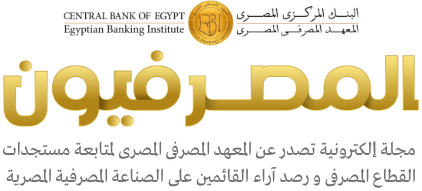الرئيس التنفيذي لشركة Risk Reward Ltd

1. Financial institutions allocate a significant budget yearly to combat financial crime. How can they improve the risk assessment process using a data-driven approach to minimize the risk and limit the cost?
In the first instance, a significant challenge faced by any financial institution is the data. Financial Institutions need to ensure they are in a position to better utilise the information that they currently hold while ensuring this is supplemented from suitable materials from reputable external sources. By building a flexible data lake and using artificial intelligence approaches financial Institutions are able to identify patterns of behaviour warranting investigation.
In order to ensure this is done successfully institutions will need to identify a benchmark or baseline of activity against which this held information can be compared. It is the modelling of this behavioural data including both structured and unstructured data that is key. This enables the institutions to proactively identify warning signs and to reduce the risk of the incidence of inappropriate activity not being promptly identified, reducing the level of risk that results.
2. Banks should collaborate with new market entrants to foster digitalization and to stay competitive. How do you assess a Banks’ advantages and disadvantages over new rivals (FinTechs)? How can the partnership between Banks and FinTechs be considered as a win-win situation for all including customers?
Digitalization is no longer an option; it is a business imperative. Banks need to grasp these opportunities to remain competitive and relevant or they will lose market share to new entrants. The FinTech companies provide solutions but can also represent challenges. The removal of barriers to entry that previously existed enables new Fintech entrants to open without the problems of legacy systems which is a challenge that many banks face and has given Fintech’s a competitive advantage.
By grasping this opportunity and identifying the benefits that digitalisation can deliver Banks can be transformational and remove the perception that they are only a two-speed bank held back by the challenges of existing brick and mortar-based systems.
This is not a simple win-win anymore, it is a serious need to develop to survive. The market demands that everything is digital and real-time, whether it is customer or market participation driven. Innovative banks will take this opportunity and develop new and interesting products that will meet increasing customer expectations ensuring the innovators remain relevant into future environments.
3. Some banks are considering risks across the end-to-end product life cycle to monitor the risk of each product and its impact on the key risk indicators. How can banks effectively manage product risk against desired commercial outcomes seeking the benefits of the customer?
Let us say that product risk can be explained as the risk that a product fails to achieve the objectives set for it. This specific type of risk needs the inclusion of consideration of capital and liquidity risk coupled with other areas such as credit or operational risks. The desired outcome may well involve a range of issues including, for example, the impact of cross-selling or even product diversification. All of these elements need to be taken into account when considering the value a product achieves.
When considering the commercial outcome, it is important to deconstruct the overall return and appreciate from whence the benefits have actually arisen. This outcome is frequently unclear and accordingly accurate assessment does become difficult. Fuller understanding is not easily achieved by looking at a solitary product offering as the decision made on suitability of other products – as well as the nature of the customer base – are key drivers for consideration. Both consolidated as well as unitary modelling should be conducted.
4. It is crucial to refocus on boosting banks’ resilience and addressing critical vulnerabilities to create more secure and profitable institutions. What are the main updated strategies that risk executives must follow to build an effective operational risk framework?
This is a good question. It starts with identifying critical services and functions as well as relevant third parties. Then moves onto interconnections between business units and the movement of information. This data output then feeds directly into a complete revision of business continuity planning and to ensure that critical services and functions are maintained.
The Governance team need to fully adopt this way of thinking as it is critical and a game changer to any institution. Operational resilience will drive changes to contracts, service level agreements and monitoring throughout the organisation. The ongoing revision of the incident management policies and procedures proactively drives this activity.
It is critical to understand that operational resilience is not part of operational risk as it addresses other matters, for example, credit and liquidity risk. Operational resilience is more strongly associated with the ICT function and needs a separate working party to deal with the issues identified.
5. As a professional trainer and knowledge services provider, what are the most important skills and topics that you have added to your agenda and programmes at Risk Reward Limited since COVID 19?
Risk Reward Limited have been systematically monitoring the impact of Covid 19 and its variants and across the globe.
We have identified that the biggest challenges faced by banks and financial institutions are:
- Model Risk – current models are unable to validate data accurately due to the data disturbance caused by the crisis
- Operational Resilience – this is essential and needs to be adopted as a matter of urgency into Institutions
- Agile Risk Management – developing agile solutions which enable prompt reporting and management of issues in a digital world
- Climate Risk and ESG – these are the new risks that need to be properly addressed as part of a full risk management framework revision and driven by the emergent BIS and OCC/Fed directives.
The pandemic has heightened the importance of risk management and particularly stress testing and scenario modelling. Financial institutions have now realized the levels at which they need to secure their businesses to satisfy multiple stakeholders.
Risk management is now becoming increasingly quantitative, and model-based in nature and as such should be utilized in identifying the above challenges within an organization as these are the main challenges having an impact since the start of this crisis.



